23 – Clare Polkinghorne: I want to be remembered for giving everything I had
Clare Polkinghorne or ‘Polks,’ as she’s affectionately known is a CommBank Matildas’ veteran, history-maker and leader. In the past, those close to her have described the Brisbane local as tenacious, passionate, unflappable, a warrior and a legend.
Stoic both on and off the pitch (unless fans are being treated to a famous Polks cele) the no-nonsense defender is as low-key and humble as they come, which makes things difficult when playing for one of the greatest sporting teams in Australia and fielding calls from your community to erect a statue in your honour.

The most-ever capped Australian footballer with 165 appearances under her belt so far, it’s hard to believe she considered herself a lacklustre footballer in her youth, but that could just be her humility shining through.
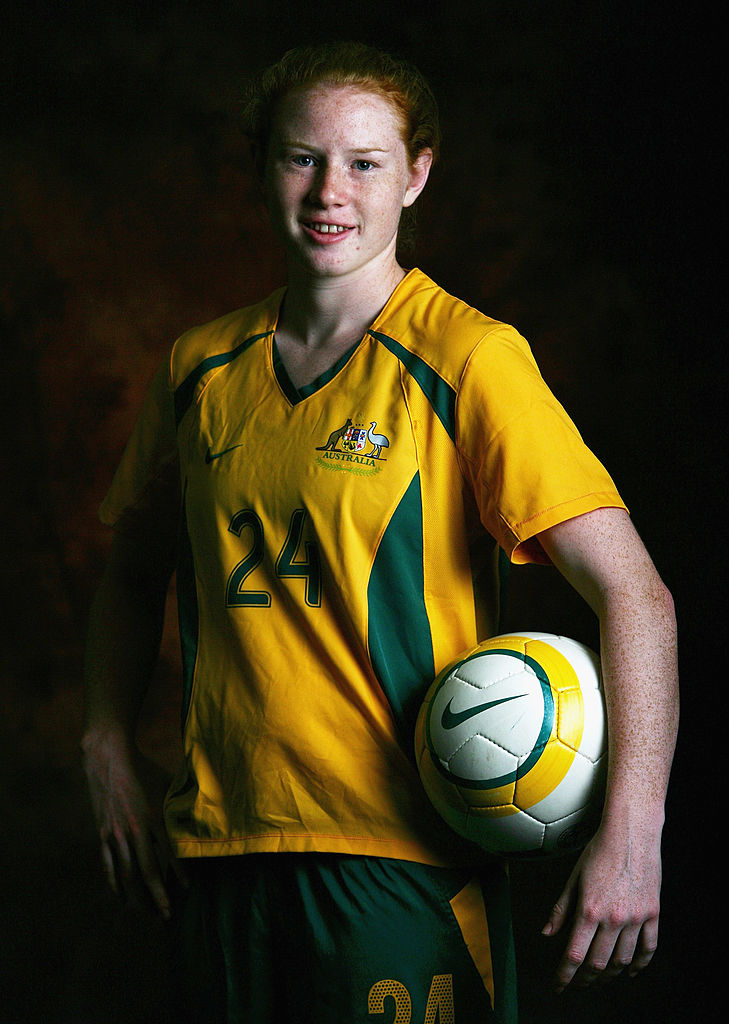
“To be honest, I was never the greatest footballer,” Polkinghorne explained when asked about her early years in the game.
Whether it was opinion or fact, she went on to embody a famous quote from basketball coach Tim Notke, “Hard work beats talent, when talent doesn’t work hard.”
“I was never the most skilful or talented footballer, but I was definitely one of the hardest-working players in my younger years. I had that discipline, competitiveness and winning mentality to never give up. That is what really set up the rest of my career.”
It was her dogged determination to succeed that convinced Tom Sermanni, former Matildas head coach, to give a 17-year-old Polkinghorne her first cap in 2006, a friendly against China. Interestingly, she came on as a striker. Her can-do attitude meant she was happy to fill gaps wherever necessary.
“We literally played her everywhere, apart from goalkeeper – although she’d quite happily put the gloves on if required,” Sermanni said when recalling the early days of Polkinghorne’s national team career.
“She played in the back four, she played in midfield, and where necessary we’d push her even further forward.”
She played in her first World Cup just one year later.
“To be honest, I was pretty surprised I even made that squad,” she said. “It was really early on in my career and Tom Sermanni probably took a bit of a chance on me, which I'll be forever grateful for. It was just the greatest experience to be selected. When you're not really expecting anything out of it, you can just enjoy the whole experience.”
In 2008, her teammates fondly recall a teenage Polks being given the daunting task of marking USWNT superstar of the era, Abby Wambach.
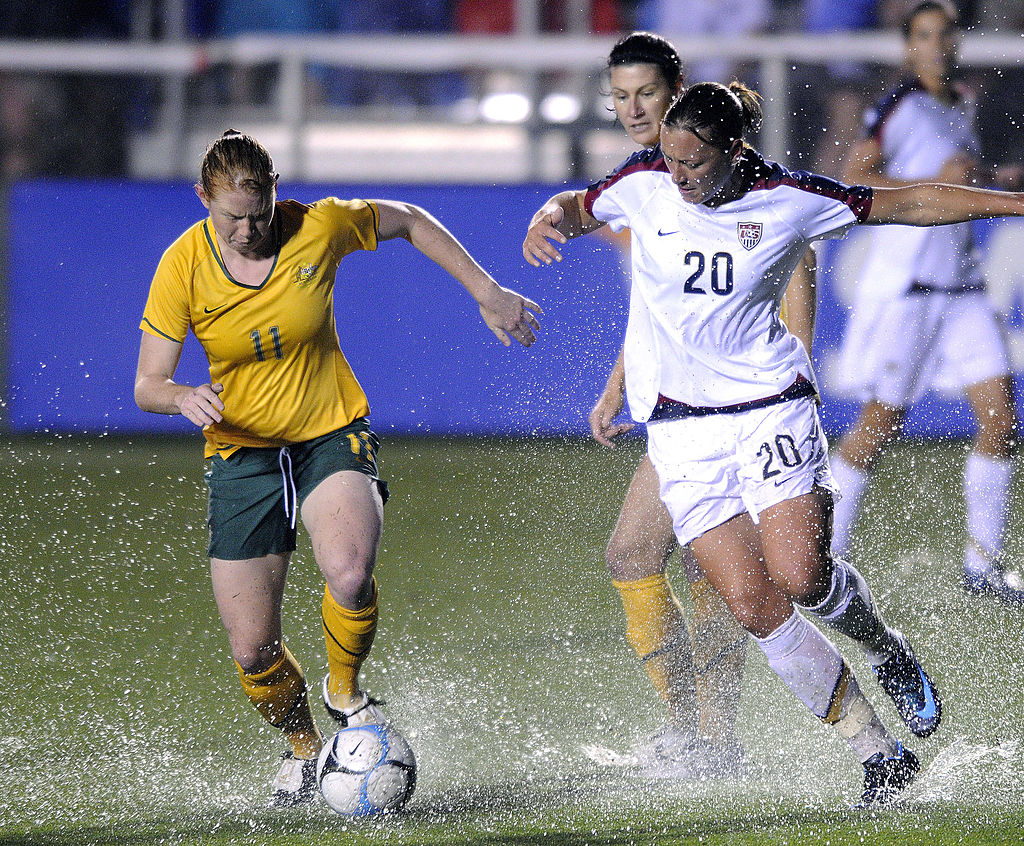
“Some of the girls like to exaggerate a story where I was told to man-mark her - and even when she went over to grab some water, I ran over next to her and grabbed some water too. I don’t know if that was accurate” she laughed.
In 2010 Polkinghorne raised her first major trophy, winning the 2010 AFC Women’s Asian Cup.
“She was absolutely immense,” Sermanni said of her contribution.
“She won tackles, she broke up attacks, she started attacks, she made forward runs, she got into the opposition box, she was in her own box – she was a complete player.
“She was one of the key reasons that we got to the final and one of the key reasons that we won that tournament.”
Polkinghorne credited many players for inspiring her in her junior years, but one, in particular, played a huge part in influencing the Polks we see on the pitch today.
“I always looked up to Cheryl Salisbury, of course, she was the captain, the leader of the team but also Kate McShea, Alicia Ferguson, all these players that I trained with when I first came into QAS,” she said.
“But Di Alagich was a big one for me. She was a defender and was so dependable, reliable and solid as a rock. I just wanted to defend like Di. She passed her number four on to me, so it holds a special place in my heart.
"The closer I get to the end, the more I start thinking to myself, now I have to pass that jersey on to someone else and keep that tradition going.”
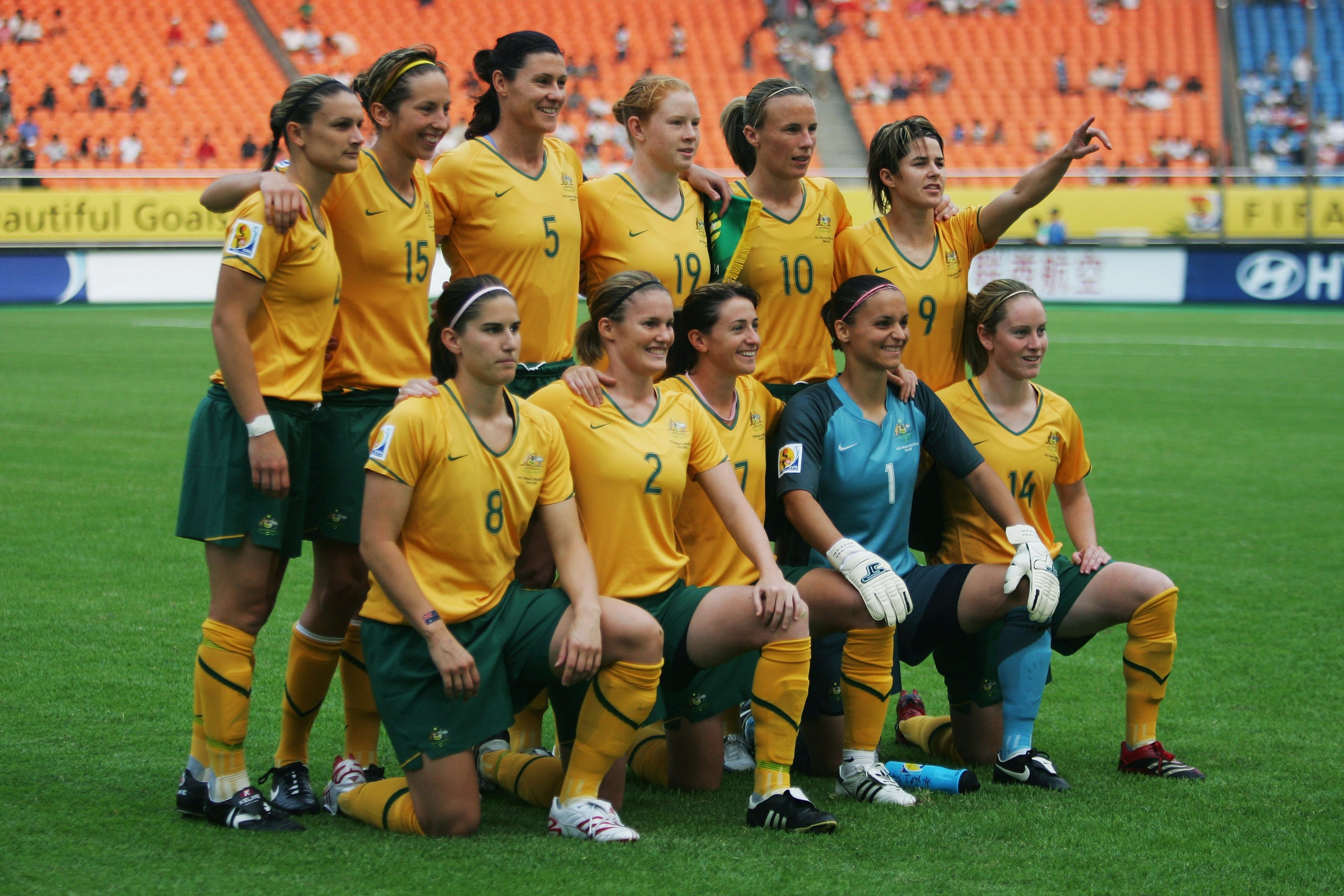
Eighteen years on, the tables have turned with new players crediting Polkinghorne as their inspiration.
Clare Hunt, who made her debut just last year has quickly become a stalwart in defence. Drawing comparisons to Polkinghorne due to her work ethic and confidence that saw her seamlessly transition into the squad.
“As a youngster, I would look up to Polks… I wanted to emulate her” Hunt said.
“She is an extremely composed, great ball-playing centre-back who is absolutely strong in all challenges she goes into,” Hunt said.
“She is also one of the most beautiful people you’ll ever meet.”
Polkinghorne was touched by Hunt’s comments.
“That's the best thing someone can say about you, that they look up to you,” she said.
“Whether you inspire them, or they want to replicate a part of you, how you play the game, or who you are as person. I think it's really special. Especially coming from Clare, the type of person and player that she is… For her to say that is really nice.”
And it’s not just her teammates and coaches who believe Polkinghorne deserves more recognition. So loved by fans, in 2021 a petition was launched to immortalise her in bronze outside Suncorp Stadium in her hometown.
“It makes me so uncomfortable to even talk about this,” she laughed when asked about her thoughts on the much talked about Clare Polkinghorne statue.
“It's difficult for me to get my head around because I don't see myself in that way and I don't see the impact that I have had or can have on people. I'm just me, so, I don't know. We'll see, I don't think it'll happen,” she continued, brushing off the accolade.
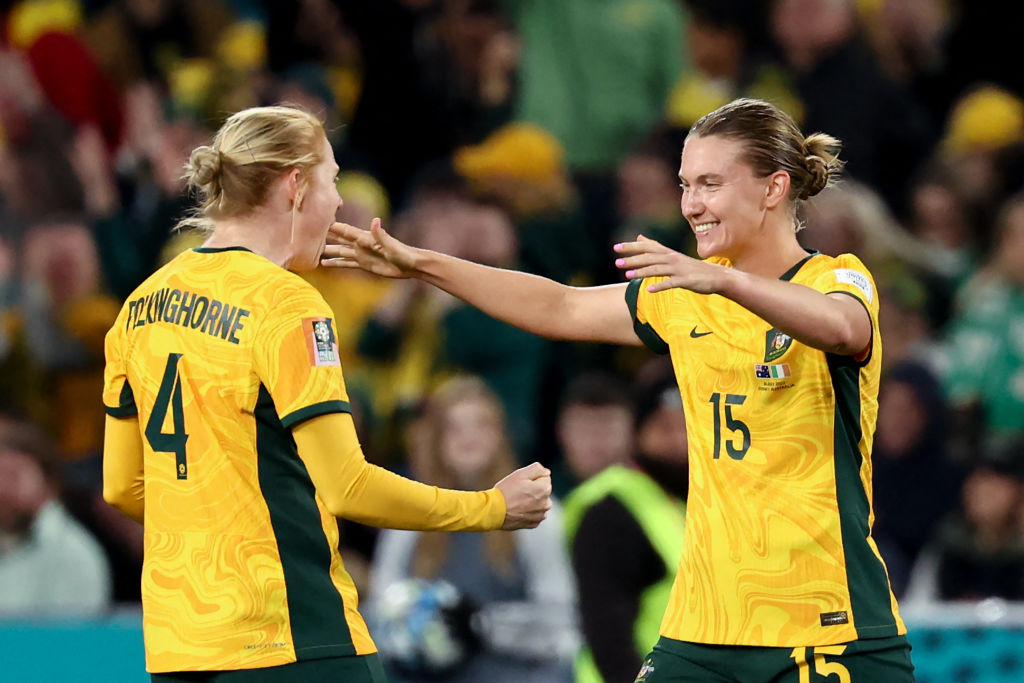
With 18 years, five World Cups and two Olympics under her belt so far, Polkinghorne reflected on how much the women’s game has grown, especially after the CommBank Matildas’ historic fourth-place finish at the recent FIFA Women's World Cup Australia & New Zealand 2023™.
“We've grown so much in the last five or six years, the sport has just taken off around the world,” she said.
“When I first came into the Matildas everyone needed to have a second job just to make ends meet,” she shared. “We had to fight for a lot as a team, so now, we’re definitely seeing the benefits of being full-time athletes, where we can solely focus on being the best footballers that we can be.
“At the World Cup, we saw the support that each game received, no matter who was playing. It created such a buzz and a great atmosphere. It’s been a long time coming, but women's football is starting to attract the attention it deserves.”
With the Paris 2024 Olympics the next big-ticket item on the horizon, Polkinghorne says the team is in its best position yet, to make even more history.
“I think we've all got that competitiveness and ‘never say die attitude.’ That's always going to be a part of any Matildas squad. It’s in our DNA. It always has been from before I arrived in the squad and it'll continue well after I'm gone,” she said.
“We're at the point now where we've got so many high-quality players, whereas I think before, we struggled with depth. Now, we've got players playing overseas in the top leagues around the world, in top clubs, winning trophies at the highest stage.
"The level of professionalism and quality that we have within this group is something that I've never experienced before.”
When speaking about what needed to be done to get the CommBank Matildas to where they are today, Polkinghorne explained that it was simply amplifying something that was already long embedded in the DNA of the team.
“It's about working hard every day to put yourself in the best position possible,” she explained.
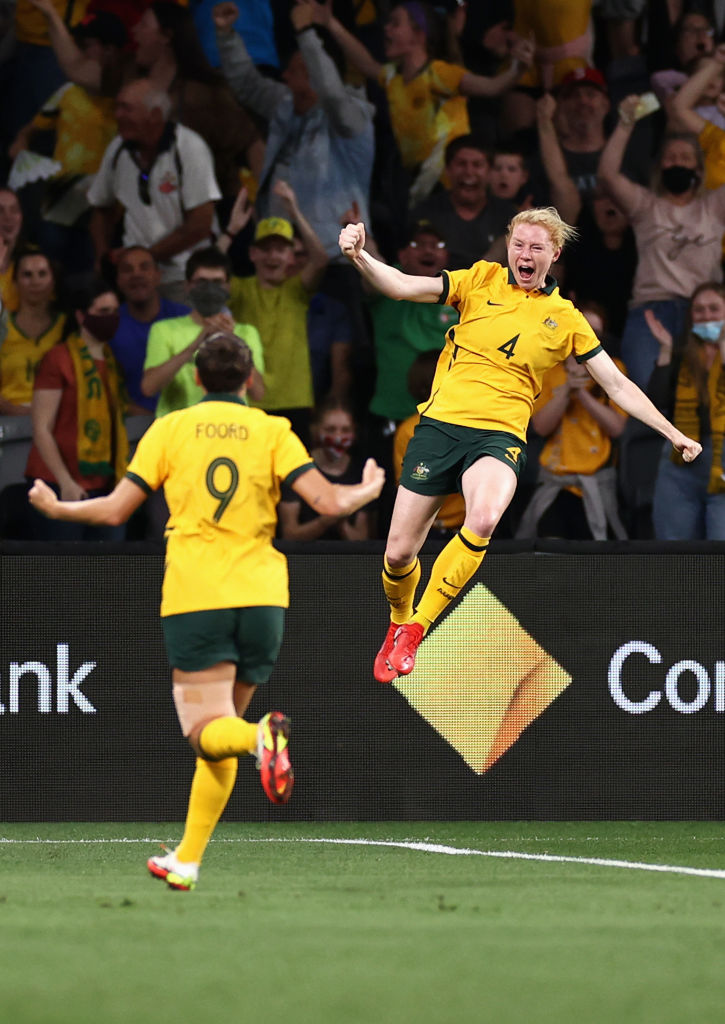
“If you don't have that desire to win, then you probably won't do everything in your power to succeed and I think that's something that takes a long time to nurture within a group.
“You need everybody pulling in the same direction and you need everyone fighting for the same thing, wanting the same thing and being willing to give everything that they have for the team.”
Giving everything you have does come at a cost, although Polkinghorne said she wouldn’t trade her experiences for the world.
“Being an elite footballer is tough. It's not as easy as just rocking up on the weekend and playing 90 minutes. We spend a lot of time away from home, away from our family and friends,” she shared.
“When you go to a new club, you have to settle into a new group of people and a new place to live. There are a lot of things outside the football pitch that can definitely create challenges for players.
“You do sacrifice so much, but what you get back in return is something you never thought you'd be able to experience. It’s those moments throughout your career that nothing else can replicate,” Polkinghorne continued.
“That's what’s so special about football and about sport, it can bring people together and you're all fighting for the same thing. When you achieve it, it's very, very rewarding.
“It's definitely a challenge, but something I wouldn't change for the world.”
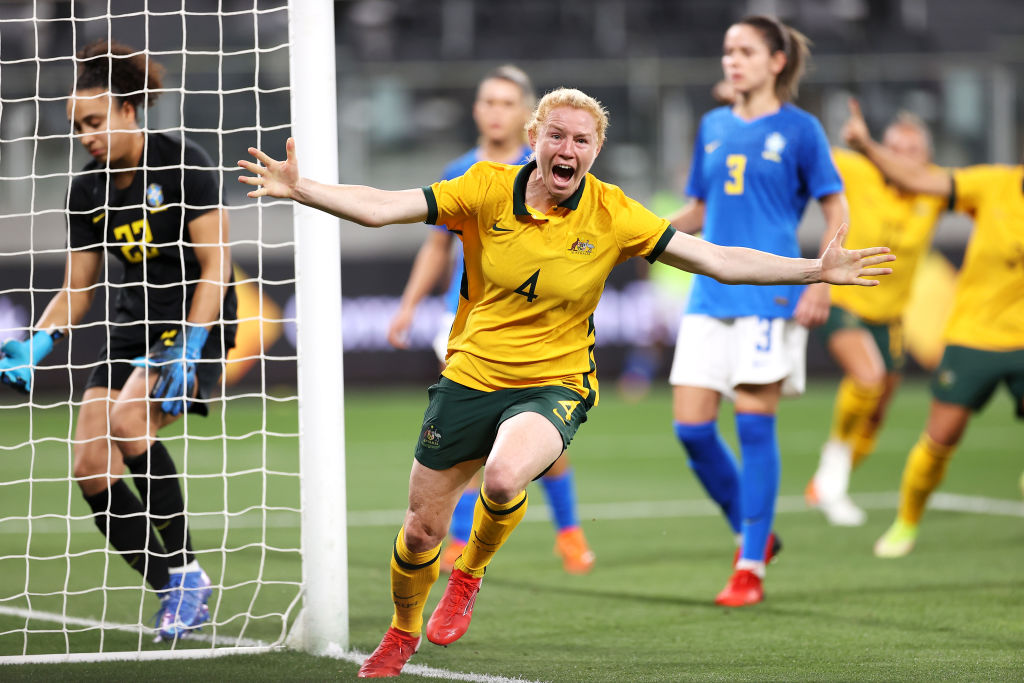
Adding their 14th-straight crowd sell-out to their list of achievements last week, the CommBank Matildas seemingly have the Australian public in the palm of their hands. The significance and opportunity that comes with this, is not lost on Polkinghorne.
“From early on, we've definitely taken the responsibility upon ourselves to drive change or fight for things that we needed for this team. It's probably been something that we've always had to do, battle for ourselves and for each other with the sole purpose of moving this team forward,” she shared.
“I think that's something we've done pretty well as a group and it’s definitely strengthened the bond that we have in the team.
“There's so much that makes me proud of being a Matilda,” she continued.
“We've been through some really good times, and some really tough times. The highs and the lows are the things that stick with you the most because they're the most emotive parts of being a footballer.
“I hope that one I’ll be remembered as a player who gave everything that they had for the jersey, someone who not only inspired others but inspired their teammates to be better as well. A good person, someone who teammates can count on.”
